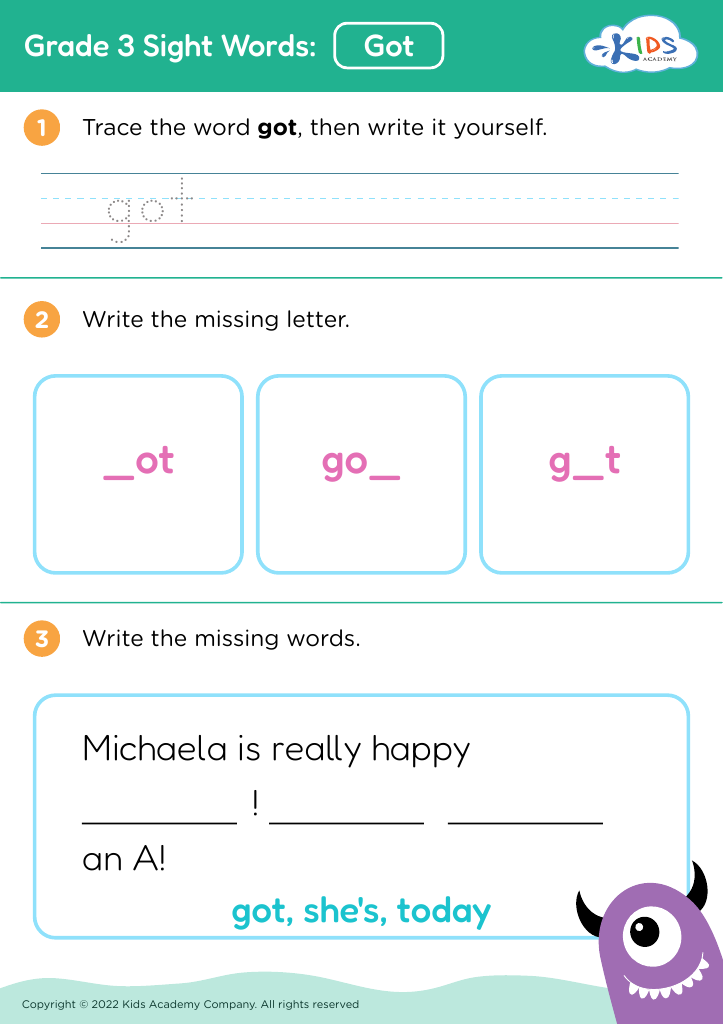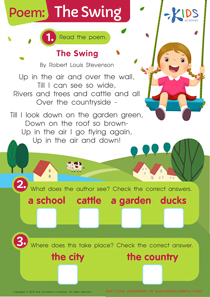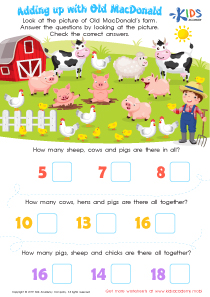Comparing Fractions Grade 3 Building Vocabulary Worksheets
6 filtered results
-
From - To
Enhance your third grader’s math skills with our "Comparing Fractions" Building Vocabulary Worksheets! Designed to help young learners understand the concept of fractions, these engaging and interactive worksheets provide essential practice in comparing, ordering, and identifying fractions. With visually appealing exercises, your child will build confidence and vocabulary in mathematical terminology while developing critical thinking skills. Each worksheet features clear instructions and ample space for problem-solving. Perfect for classroom use or at-home learning, our resources support educators and parents in reinforcing key mathematical concepts. Explore our printable worksheets today to make learning about fractions fun and effective!
Comparing fractions is a fundamental skill in mathematics that lays the groundwork for understanding more complex concepts later on, such as algebra and geometry. For Grade 3 students, building a robust vocabulary around fractions helps them to articulate their thought processes and reasoning. Parents and teachers should prioritize this skill as it enhances critical thinking and analytical abilities.
When children learn terms like "numerator," "denominator," "greater than," and "less than," they become better equipped to explain their comparisons and understand the relationships between different fractions. This vocabulary enables them to engage in classroom discussions, boosting their communication skills and confidence.
Moreover, comparing fractions has real-world applications, such as cooking, budgeting, and understanding pie charts, facilitating connections between classroom learning and everyday life. The more comfortable students become with comparing fractions, the easier it will be for them to approach higher-level math concepts without fear or confusion.
Encouraging this foundational skill helps establish a positive attitude towards math, fostering a love for learning. As parents and educators, supporting students in mastering comparing fractions not only enhances their math skills but also promotes overall cognitive development and problem-solving abilities that are crucial in life.


















